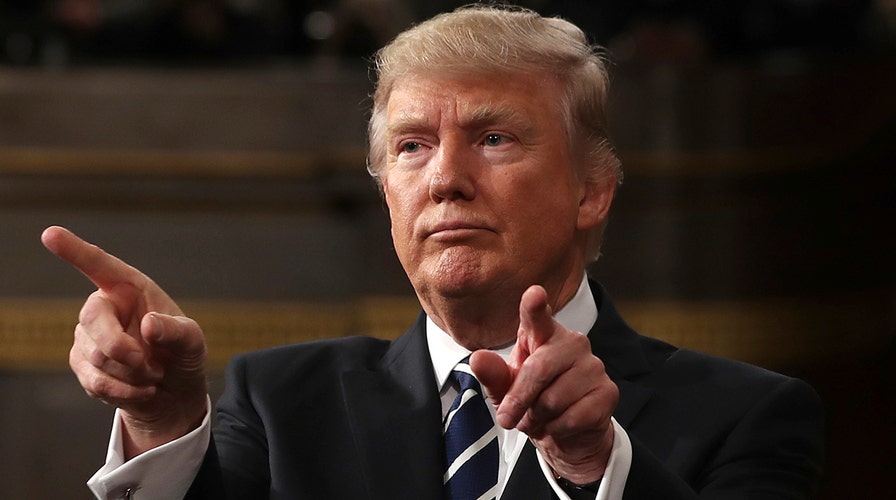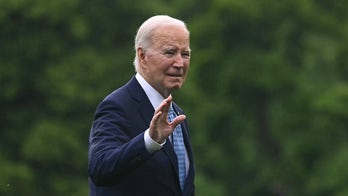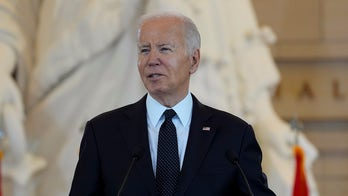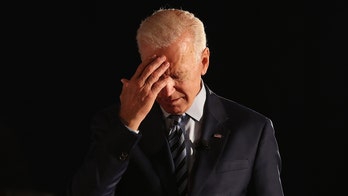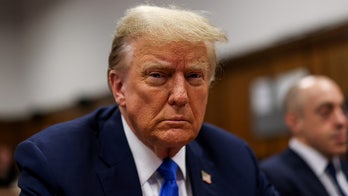Why Trump should ride the wave of positivity from his speech
The debate continues on 'Overtime'
President Trump shifted Wednesday from soaring rhetoric to an exercise he’s perhaps more comfortable with – negotiations – as he met with House and Senate Republican leaders to discuss how to implement the ambitious agenda he laid out in his first address to Congress.
White House Press Secretary Sean Spicer said Trump’s leadership lunch meeting was to focus on the initiatives from the president’s speech.
The meeting did not include Democrats despite Trump’s call Tuesday night for all sides to “join forces,” but Spicer noted Trump has “shown a desire to reach across the aisle.” He met first with Republicans, Spicer said, because “the people who set the agenda and timetable to enact the agenda are Republicans."
Trump essentially hit reset on his young presidency with his address Tuesday night. It was generally well-received, with House Speaker Paul Ryan calling it a “home run” and even some of his critics giving him positive marks.
The president, though, faces a tall task in turning the latest version of his agenda into action. Republicans are sharply divided over how to overhaul the Affordable Care Act as well as Trump’s call to cut many federal agencies’ budgets while boosting military spending, without tackling entitlements.
His appeals to Congress on Tuesday included:
- A call for legislation that yields a $1 trillion public-private investment in infrastructure.
- A call to repeal and replace ObamaCare with reforms that expand choice and access while lowering costs. Trump also spoke out against the individual mandate, leaving unclear how an eventual ObamaCare replacement would prevent insurance plans from being overwhelmed by unhealthy customers, in turn raising costs further.
- A call to make childcare more accessible and affordable.
- A call for a new school choice bill.
- A call to reform the tax code.
The positive response to Trump’s speech, though, could signal at least a fleeting opportunity for the president to reclaim momentum for his agenda.
“THANK YOU!” Trump tweeted Wednesday morning, while mostly staying out of the public eye in the aftermath of the address.
Trump for the most part traded the contentious and punchy tone of the last few weeks for loftier – some might say more presidential – rhetoric Tuesday night. Declaring “the time for small thinking is over,” Trump appealed to the country to “believe, once more, in America.”
“A new chapter of American greatness is now beginning. A new national pride is sweeping across our nation,” he said. “And a new surge of optimism is placing impossible dreams firmly within our grasp.”
And as he did during the presidential campaign, he pushed a nationalist message, making big promises for what will happen when America puts its citizens first: “Dying industries will come roaring back to life. … Crumbling infrastructure will be replaced with new roads, bridges, tunnels, airports and railways gleaming across our very, very beautiful land. … Above all else, we will keep our promises to the American people.”
He said his job is to represent the United States, not the world.
He also defended his stepped-up deportations and other border security plans, casting his immigration agenda as part of the broader economic plan. By enforcing immigration laws, he said, “we will raise wages, help the unemployed, save billions and billions of dollars, and make our communities safer for everyone.”
